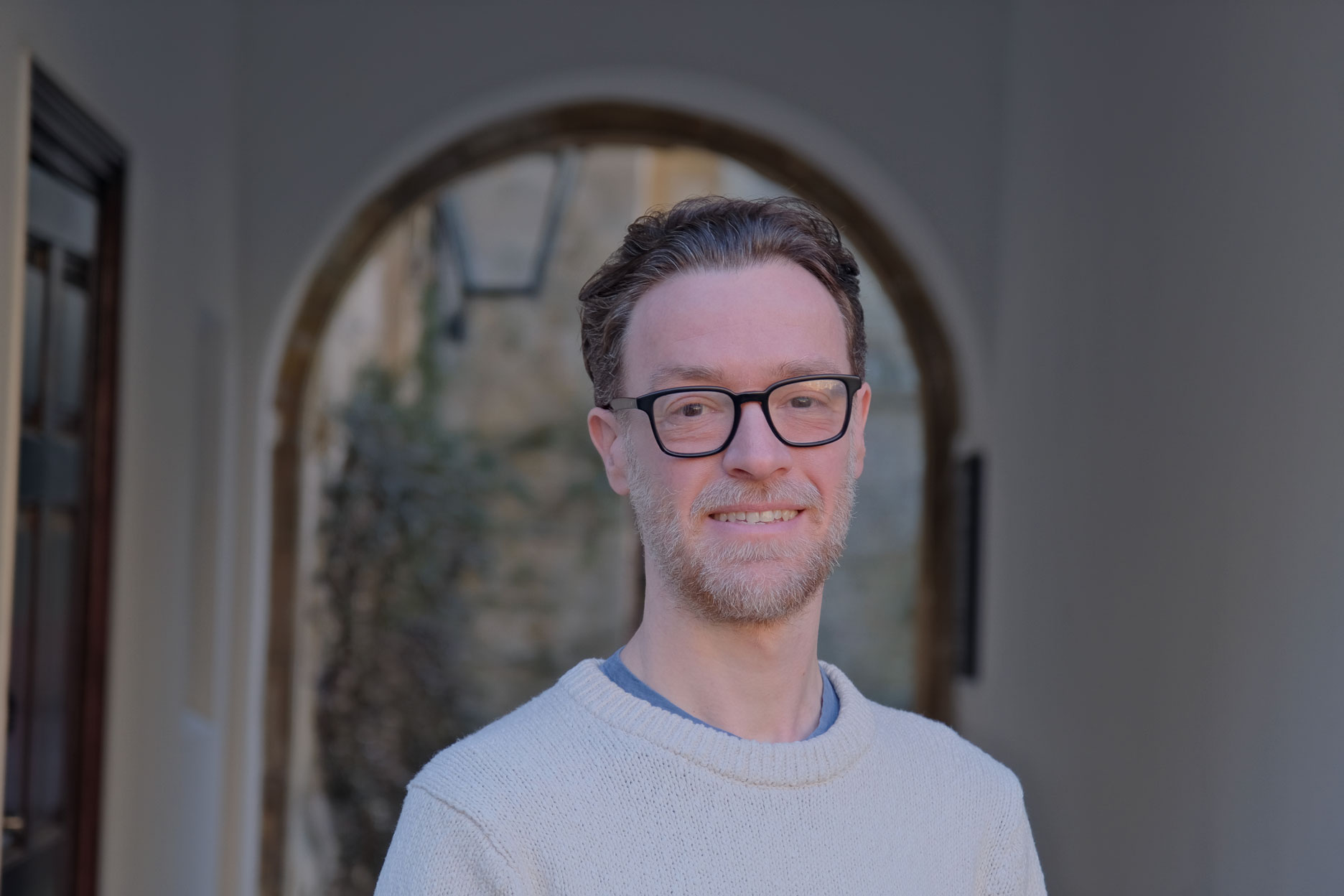Meet Dr James Wood – Acting Senior Tutor
Dr James Wood is Acting Senior Tutor at Trinity Hall for Michaelmas term 2022 and Lent term 2023. His academic expertise lies in Political Economy and prior to returning to academia, James worked in the music industry.

What makes a good Senior Tutor?
Caring about student welfare and their studies is vital, as is the more mundane ability to navigate the complexities of Cambridge’s Collegiate system. But for me the main thing a good Senior Tutor needs to do is to strike a balance between supporting students with the various different challenges and opportunities they face, whilst also providing them with as much agency as possible.
What is the best thing about being a tutor?
For me, helping students through difficult moments is the most rewarding part of being a Tutor at Trinity Hall. Studying at Cambridge is incredibly challenging, no matter the subject students are taking. These challenges can be compounded by the different things life throws at the students. Whilst I hate seeing students upset, it is really rewarding to see a student leave your office feeling better able to deal with a difficult situation than when they came in, and knowing that there is support for them from the College. The more challenging a situation is, the more rewarding it is for Tutors to see students overcome those challenges.
As you can imagine, the General Admission procession out of College is a really important moment as a Tutor. You can’t help but be incredibly proud of your Tutees because you can see the results of their hard work and you know the really difficult challenges that some have overcome to obtain the degree they earned.
Why should a prospective student apply to Trinity Hall?
We often go on about how we are a small and friendly College by the river, but we really are a small and friendly College by the river! Students often comment on how they feel part of a community where they get to know people and are not just one of a crowd, which can happen at some of the larger colleges. We have a vibrant Fellowship with academics who are experts in their fields, and I have a wonderful set of colleagues who are committed supervisors. The College has also focused on supporting student welfare in recent years. A great example has been the addition of our new Head of Wellbeing, Lisa Déry, who has developed a wide range of support options for students. The rest of the College’s staff, from the Porters to the Tutorial Office to the kitchen and housekeeping staff, are all welcoming and I have seen so many examples of them going out of their way to help students whenever they can. We also have a new Master who has been wonderful to work with. So, overall, I think it is a really exciting time to be at Trinity Hall.
What was your route into political economy?
During my undergraduate degree in Economics I took a third year module on International Political Economy. At the start of the first lecture I was really unimpressed by the professor, as he used an overhead projector and explained things using his own drawings of things like oil barrels, factories, workers and capitalists. The last one made me particularly sceptical. Half an hour later I was completely engrossed by his way of narrating the material and it was so different from the rigid economic theory I had come across that had implausible assumptions. The topics covered over the course were fascinating and I learned so much about how national governments interact with their domestic economy, as well as the global financial system. We also covered issues such as how the state and economy combine to impact other issues, such as gender and colonialism. I also had the most amazing seminar leader – she was really passionate about the subject and made the seminars focused on student-led discussion of the readings. This inspired me to do a MA and PhD in International Political Economy, where I looked at how liberalisations of mortgage credit at the national and international level work as a way of legitimising domestic politics in Britain and Denmark. Since then, I’ve been focusing on how political actors in the US and UK construct and narrate crises of economic policymaking. As you can imagine, the current inflation crisis has made it a very interesting time to be researching such a topic.
Political Economy is a fascinating subject and Cambridge is a wonderful place to study it at the undergraduate level. There is a wide range of key thinkers covered in the Political Theory courses across each year. I teach a Comparative Political Economy course focusing on the US and UK that is part of the POL4 second year paper. There is also the brilliant Politics of the International Economy paper taught by Professor Helen Thompson and Professor Jeremy Green that students can take in their final year.
What do you enjoy outside of academia?
Believe it or not, a long time ago I used to be a lot cooler than I am now, as I worked in recording studios in London and Los Angeles. So, music is a really important part of my life. I play the guitar and spend a great deal of time writing, recording, or listening to music. Other than that, I became hooked on Peloton during the pandemic, so indoor cycling is my other main hobby. This resulted in me adopting a range of annoyingly over-positive motivational slogans, which I try to keep to myself.
